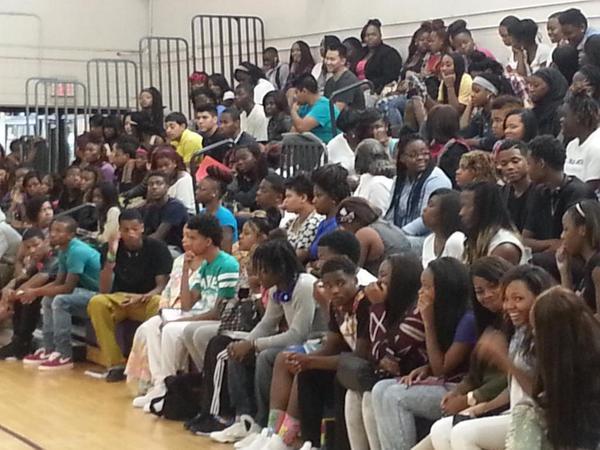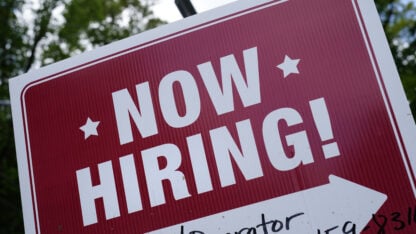When you hear the term “alternative school” you might think of troubled children or students who can’t cut it at regular public schools. While that’s true for some students, alternative education programs vary widely in Georgia.
A Nontraditional Model
McClarin High School has a pretty campus ─ almost scenic ─ near downtown College Park. It’s what’s known as a nontraditional school. Principal Chuck Gardner calls the school “McClarin Success Academy.”
That language is deliberate; children with discipline problems aren’t referred here. Students have to apply for a spot. Many do have challenges, like pregnancy and part-time jobs, and they can’t meet the demands of an 8 a.m. to 3 p.m. school day. So the school offers flexibility. For example, Gardner says, a medical van comes to campus twice a week.
“We saw that a lot of our kids were leaving to go to a local health clinic and get health care, and they were missing school due to that,” he says. “So, we said, ‘Why not contract with somebody and get them out to the actual school so they can walk outside, go to their appointment, come back in and go to class?’”
The school also offers transportation, on-site day care, and a full-time social worker. Classes here are small and have about 11 students each.
More than 80 percent of McClarin students graduated in 2014, and the majority of the graduates enrolled in some kind of college, the school says. But the four year cohort graduation rate still sits at about 25 percent for the year 2014, according to data from the Georgia Department of Education.
The Discipline Dilemma
There’s a second type of alternative school in Georgia.
“[There are schools] where students are because of their behavior or students have been expelled, but they’re allowed to go to an alternative setting,” says Samuel Taylor, who oversees the state’s alternative education programs.
Taylor says students who’ve been referred to alternative schools for discipline problems are usually behind academically. That presents a host of other problems, he says.
“It’s very tough financially to provide adequately for these kids who have a wide range of academic abilities coming into these programs,” he said.
They need intense instruction, small classes and strong teachers, Taylor says. Fulton County Schools wouldn’t let WABE into a more restrictive school, saying students might get too distracted.
It costs a lot of money to provide that kind of structure. The state pays some money for alternative schools. Local districts chip in, too. But all of those extra services at McClarin High School are paid for by special federal grants.
A lot of alternative schools don’t have transportation or extracurricular activities. That can send a negative message to the students that they’re not valued, says Randee Waldman, director of the Barton Juvenile Defender Clinic at Emory University School of Law.
“If we’re actually sending our kids to alternative placements, if we wish for them to succeed, if we wish for them not to spend their life behind bars or in low-paying or minimum wage or any jobs, we need to provide them with quality education when we are removing them from school,” Waldman says.
The Case for Changing Climates
But some state officials seem to be more focused on another piece of the puzzle.
He believes changing a school’s climate will result in fewer discipline problems. So the state issued climate ratings, a grade based on the quality and culture of the school’s environment, for every Georgia school this year. Parents, teachers and students filled out surveys on their schools. The state used the results to rank schools on a system of one to five stars, five being the highest.
McClarin High School got a five star rating. Even so, math teacher Matthew Crouch says the school has its challenges.
“Individuals who are very motivated get a lot out of the program, which is great,” Crouch says. “So, we see a lot of success, and we’re still working on the ones who don’t want to show up.”
Experts say intervening early may eventually keep more children out of alternative schools, but one-third of Georgia students don’t graduate on time, according to the Georgia Department of Education. So, officials are still trying to figure out how to help students already in alternative schools stay and earn a diploma.









